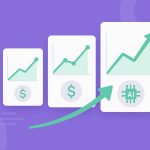From a financial point of view, everyone seems worried about 2023. From the average Jane and John, you spot in the grocery store to mainstream media pundits, chances of a recession loom large not only in the U.S., but the world over.
But if you’re newly retired and aged 62 or older, you might be sitting on a profitable cash cow you had no idea existed. It’s called a reverse mortgage. If you’ve been living in your family home for decades and have been paying religiously on the monthly mortgage, you can tap into all that equity you’ve been building up. If approved, the proceeds from the loan can potentially net you hundreds of thousands of dollars.
You can take your cash in one lump sum payment, or you can take equal monthly disbursements. But the best part about the loan is it need never be paid back unless you move, or you die. You can find out how much of a reverse mortgage you qualify for along with some reviews regarding the financial retirement tool by clicking on this link: reversemortgagereviews.org.
In the meantime, what other things can you be doing to boost your retirement portfolio in 2023? According to a new report by The Motley Fool, if it’s your goal to settle into a comfortable retired life minus the anxiety of financial issues, you’ll need an income besides Social Security. Full stop. This is where your retirement portfolio enters the equation.
But in these days of high inflation, it’s not east saving money. Not when you find yourself spending more cash on simple essentials like housing and food. But despite the new financial issues that suddenly emerged concurrent with the 2020 U.S. presidential election and exorbitant money-printing that occurred, it’s still possible to grow your retirement savings in 2023.
Here’s how.
Make Sure to Claim your Full 401(k) Match
Lots of companies that offer 401(k) programs to their workers will also match worker contributions, at least to a certain extent. You should be fully aware not only of what your matching program entails, but you need to contribute enough funds in order claim your full match.
If you do not claim your entire employer match, you’re simply giving up free money. No sense in that. However, what’s just as problematic is that you’ll end up losing out on the opportunity to compound and grow your funds over time. Saving isn’t a short game. It’s a long game of dollar cost averaging and compounding interest over time.
For example. if you have the chance to grab an extra $3,000 from your employer to match your 401(k) 2023 contribution and invest it for 30 years at an average 8 percent return, you’ll turn it into about $30,0000. The point is that claiming even one single company match for a full year can boost your 401(k) by tens of thousands.
Be Aware of the Rules for Catch-up Contributions
Says the Motley Fool, once you’ve turned the corner on fifty (and it happens before you know it), you will be allowed to invest in catch-up contributions to an IRA or a 401(k). A rumor abounds that catch-up contributions are strictly reserved for workers who are way behind on their savings. But nothing could be further from the truth.
You are eligible to make catch-up contributions once you turn 50 under all circumstances no matter what kind of shape your IRA or 401(k) is in. Catch-up contributions are predicted to rise in 2023. In 2022, the limit for a contribution is said to be $6,500. But in 2023 that will increase by $1,000.
Expand Your Savings Beyond IRAs and 401(k)s
Even if you find yourself in the very fortunate financial position of maxing out your IRA and 401(k), that doesn’t mean you shouldn’t be looking at other opportunities to increase your retirement portfolio. You can seek out a reverse mortgage or invest is something that like Bitcoin which averages a 100 percent increase in value per year (although it is a very volatile asset), or you can even investigate a health savings account or HSA.
Even though HSAs are engineered to assist older people with their healthcare costs, they can also be used as an effective retirement tool. There is usually no getting around the high costs of health care in your retirement years, which means having extra cash in your HSA would mean you won’t need to tap into IRA or 401(k) to pay for extra medical expenses.
Once you turn 65, you can take money out of your HSA without penalty, which means the savings won’t be limited to health-related issues. That makes an HSA a no-risk financial proposition.
Lynn Martelli is an editor at Readability. She received her MFA in Creative Writing from Antioch University and has worked as an editor for over 10 years. Lynn has edited a wide variety of books, including fiction, non-fiction, memoirs, and more. In her free time, Lynn enjoys reading, writing, and spending time with her family and friends.















